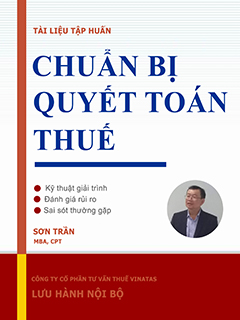1. “I totally understand.”
People have such an innate desire to connect, that to hear an empathic sentence such as the one of “I understand” really warms the hearts of the ones involved in a process of dialogue. To acknowledge the other one’s point of view is the first step for a successful communication. Everybody wants to feel that they’re not alone, but rather truly connected. Meeting someone else that makes an effort to understand what you feel, because he or she went through something similar, is very reassuring. The act of being present in the moment of communication, even if that moment is happening through the use of technology, means that you need to pay focused attention to what the other one is saying, and that you express true empathy towards his or her feelings.
2. “Tell me more about that:”
This sentence signals the other person that you’re curious and with time to listen to what the other one has to say. This phrase should be used with the according emotion, which means that when you use it, you need to be really there, prioritizing that dialogue, by being silently focused on what the other one has to say, which implies that you set aside your iPhone or tablet. By paying more attention to your interlocutor, he or she will feel more empowered and acknowledged.
3.“What do you think?”
“What do you think?” is a powerful question, regarding communication, as it recognizes your interlocutor´s expertise. In doing so, you open a space that welcomes authentic suggestions. Be aware that your interest on the ideas and thoughts of the other person should be genuine, as otherwise you are just wasting time, and feeding the other one´s frustration.
4. “What I Hear You Saying Is:”
This sentence powerfully gives a hint to the other person of your willingness to actively engage with what he or she are saying. When rephrasing what another one just formulated, you contribute to the flow of communication, clarify your own understanding, and probably end up getting more detail. This sentence benefits both parties, as your dialogue swiftly shifts into the production of a common meaning.
5. “You’re Right:”
People feel very well when they are praised positively, particularly if you express it with sincerity. To acknowledge that you were wrong also shows you as a humble and vulnerable person, with whom your employee can identify. And people trust those with whom they can identify. To tell someone that she’s right will enable both to access a common ground, and move on from there.
6. “I Trust Your Judgment.”
Trust is a combination of character and competence. Character is about who you are as a person while competence is about what you can actually do. Your competence varies concerning different contexts. Telling your employee or collaborator that you trust him is highly meaningful, as it means that you believe in his capabilities to make it happen. It acknowledges his competences in an active way, by placing inspiring expectations upon his shoulders, which will lead him to feel more motivated to contribute to the common project. He can then put into practice his own creative ideas.
7. “I Don’t Know.”
No one has all the answers. To humbly acknowledge our limits, by boldly facing human limitations, is actually a fantastic act of courage. “I Don´t know” followed by some active statement of strong willingness to look for common answers and solutions, can be perfect to start a dialogue that will bond people into a common goal. “I will thing about it” is also a nice sentence to use. No one has always the authority or expertise to make decisions and deliver the right solution. This phrase gives you some time to figure out some answers and it also signals you as flexible and open minded. Be sure though, to follow up on the sentence, and deliver the requested answer, otherwise, you risk not being taken seriously next time.
8. “Thanks”
Thank you shows appreciation, particularly when it is given sincerely. The word ‘Thanks’ is the most basic code of social etiquette and in a working environment, this word should be present in the back of your mind as a mantra, that is ready to be used politely when engaging with your collaborators’ or employees. Another important word in communication is “please”. Sometimes, we tend to forget it, when going through the rush of a busy “business” day. Bear in mind though, that the people you work with will be more willing to participate in whatever you are doing, when being asked to do it nicely, and as if it is a favor. “Well done” is also a fantastic sentence that can do wonders to your communication style. People want to know that what they did was great as they have placed a lot work into their projects. More than getting your recognition on how your task or goal was achieved, they want constructive feedback: precise and detailed information on why their work was special.
9. “I’m On It.”
This powerful expression is deeply empathic. It means that you are personally committed to the process of communication, because you really care about the other one. “I’m on it” can make you quickly win the confidence of your employee or collaborator and if you want to emphasize your willingness to commitment you can even say: “You have my word.” Be sure that you are authentic when using both sentences as they mean that you’re willing to “stick the neck on the line” for the other one, and that you will really make it happen whatever it takes.
10. “How can we make this happen?”
If you have your own business you know that what lead you to where you are now, was your imagination, inspiration, vision. Do you remember how you were driven by a strong impulse to follow your dreams, by using your creativity to move out of your comfort zone ? What about inspiring others to do the same thing ? You can invite them to jump into the same boat you are in, by using a phrase like “How can we make this happen?” or “Let’s try this out?” Be sure though to analyze all different options they offer you with open heart, by not judging right away their ideas.
11. “Let Me Play Devil’s Advocate:”
Sometimes it is necessary to use critique to evolve to a different level. How to give feedback when communicating in a productive way, and how to introduce new possibilities and ideas? A good solution might be to transform your dialogue into a detached, unpersonalized analytical exercise where both will look at the big picture from various contradictory angles. Both you and your interlocutor will gain in growing awareness of what is there to be done, what are the pros and cons of the various options, and what are the alternatives you have.
12.”I’ve Got Your Back!”
No one is perfect and there will be times you will have to face someone that has done some big mistake. But is it worth it to blame others? What about showing some friendly human understanding by giving a direct signal of reassurance ? You can use sentences like :“I’ve Got Your Back, I’m not judging you. You’re going to get through this. You’re not alone. We’ll figure this out together. It’s going to be OK”. After such reassuring sentences, you can then guide your collaborator into the right steps to avoid doing the same mistakes.









